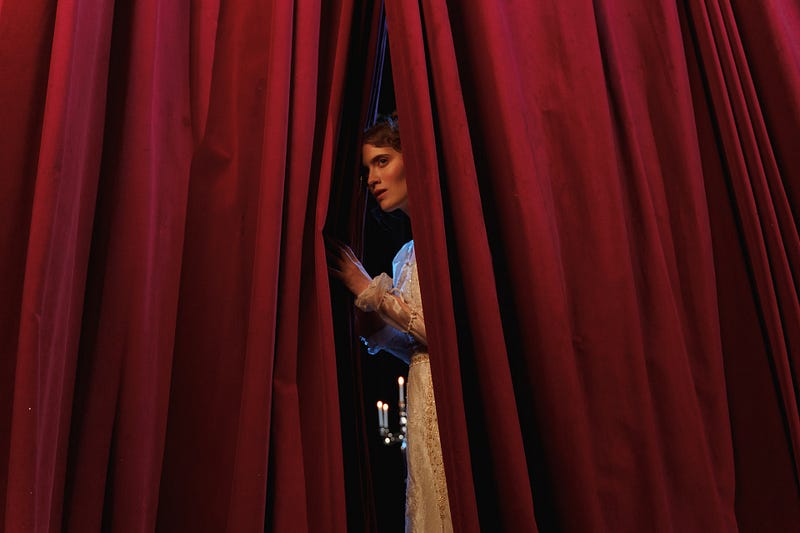# Has the Digital Era Ended the Artist's Relevance?
Written on
Chapter 1: The Artist’s Evolution
The traditional image of an artist often conjures up visions of a solitary figure, distanced from the hustle and bustle of society, financially supported by a benefactor, and working without the constraints of time. This romanticized notion, however, starkly contrasts with contemporary realities. The landscape of creative industries has shifted dramatically, leading to the erosion of the artist's idealized role.
A Time of Great Hope
At the turn of the millennium, many perceived the rise of digital technology as a revolutionary force that would democratize the creative sector. Unlike physical media, which limited access to a select few, some experts predicted that a vast digital marketplace—coined "The Long Tail" by Chris Anderson in 2004—would allow consumers to discover niche products.
In this new framework, audiences could explore indie offerings that aligned with their unique tastes. The expectation was that mainstream hits would become less significant as consumers gravitated toward more personalized projects. There was a collective hope that this shift would foster dedicated followings for independent creators.

Reality, however, has not mirrored these optimistic projections. While some niche projects garnered attention, the sheer volume of digital content resulted in many works being overlooked. Instead of diminishing the prominence of hits, the expansive online landscape has amplified their success. Faced with overwhelming options, many consumers tend to gravitate toward what is currently trending.
Being One Among Many
The stratification of creative expression is evident across various sectors, particularly in music. By 2019, a staggering 60% of concert revenue was earned by the top 1% of musicians, up from 26% in 1982. Artists increasingly depend on income from live performances and merchandise, as the value of recordings has diminished in an overcrowded market. The rapid pace of the connected world has led to a culture where entertainment is often viewed as a disposable commodity.
This perception is further exacerbated by streaming services, where consumers don't own their favorite content, making it possible for access to be revoked at any time. As a result, art has become commodified to a significant extent.
Written Words in Flux
The publishing industry has also undergone significant transformation. In 2015, the UK produced a staggering 186,000 new titles. While self-publishing has contributed to this increase, the growth in readership has not kept pace.

In this evolving landscape, some creators turn to crowdfunding, inspired by success stories. However, in 2019, around 70% of creators on Patreon earned merely $1,000, a figure that starkly contrasts with the more glamorous narratives often shared. This income comes with its own challenges.
In the so-called creator economy, artists frequently encounter offers to work for exposure rather than pay. Moreover, they must juggle various roles, becoming experts in branding, copyright, and marketing. The intensive dedication of past literary figures like Gustave Flaubert, who wrote Madame Bovary over 12 hours a day for five years, feels like an unattainable ideal for today's creators.
New Horizons and Challenges
The ease with which individuals can access a vast array of products has altered the perceived value of artistic labor. At the beginning of the 21st century, many hoped that the abundance of opportunities would encourage the entertainment industry to take more risks. Instead, the opposite seems to have happened. With fleeting digital displays, companies often tie new projects to established franchises to capture attention in a world where focus is scarce.
Some corporations have come to regard artistic endeavors, including writing, as mere hobbies, treating them with the same casualness. Yet, creative work is labor, deserving respect and recognition. The structure of the creator economy complicates efforts to shift perceptions of art.

In this interconnected environment, where visibility is paramount, artists feel pressured to continuously generate content. The mantra of "content is king" has fueled fierce competition among creators, compelling them to strive for success, sometimes at the expense of their peers.
This relentless pursuit of attention, coupled with the need to produce vast quantities of content, can create a toxic atmosphere. The pressure to "create more" may not suit everyone; consider that Donna Tartt took ten years to write The Goldfinch, a Pulitzer Prize-winning novel. Artists should not feel obligated to churn out their cherished works for commercial success.
The first video discusses the future of AI art, arguing that it may become irrelevant in the coming years. The insights provided illuminate the challenges artists face in the digital landscape.
The second video features Jack Conte discussing how artists can finally receive fair compensation in the digital age, offering valuable perspectives for creators navigating this complex environment.
Sources:
Anderson, C. 2004. “The Long Tail” in Wired.
Devon Wilke, L. 2014. “Free Books: Marketing Genius or Devaluation of Writers?” in HuffPost.
Foster, M. 2012. “Are Indie Authors Devaluing Books?” in Self-Publishing Advice.
Hsu, H. 2020. “How Can We Pay for Creativity in the Digital Age?” in The New Yorker.
Lunny, O. 2019. “Record Breaking Revenues In The Music Business, But Are Musicians Getting A Raw Deal?” in Forbes.
Nair, Y. 2016. “I’m a freelance writer. I refuse to work for free” in Vox.
O’Connor, F. 2015. “The book has become a devalued symbol of human imagination” in The Irish Times.
Peckham, E. 2019. “The business of Patreon” in TechCrunch.